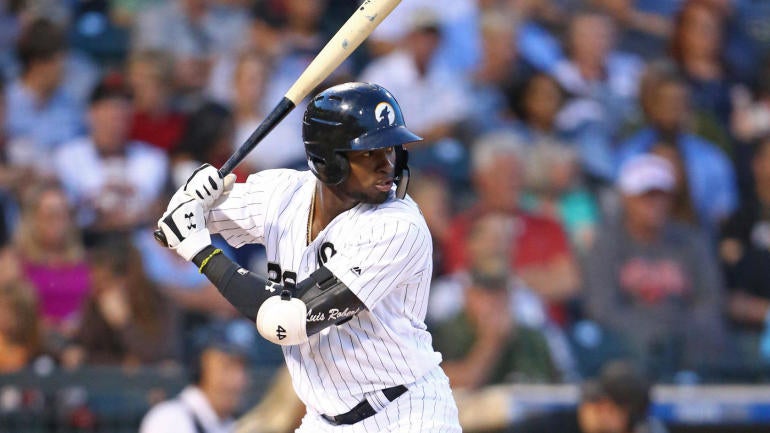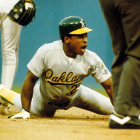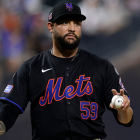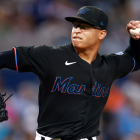
There will not be a minor-league season in 2020, yet there will be Prospect Watch -- albeit in an altered format. Rather than surveying the land for every team, we'll be highlighting one youngster playing in big-league games. This week, that player is Chicago White Sox outfielder Luis Robert, who, in his first week in the Show, has hit .368/.400/.579 with two extra-base hits.
Over the winter, we ranked Robert as the third-best prospect in the sport, behind Tampa Bay Rays shortstop Wander Franco and Los Angeles Angels outfielder Jo Adell. At the time, we expressed concern that the White Sox might delay his arrival through service-time manipulation.
Chicago didn't do that. Instead, Rick Hahn signed Robert to a six-year extension worth $50 million. The pact includes two team options, granting the White Sox additional control over his career before he had seen a big-league pitch. While there's obvious risk in committing so early, there's also an enormous amount of potential reward as it pertains to Robert's star ceiling.
Robert's athletic gifts are evident. He's big and strong, with the power to swat 30-plus homers, and yet he's fast and explosive enough to contribute on the basepaths and to remain in center field. In a limited sample, he's posted elite or near-elite sprint speeds, according to Statcast. He passes the eye test in addition to the metric test. Watch how he glides to grab a line drive:
At the plate, Robert uses an easy-peasy swing to hit the ball hard. (On his eight batted balls through Sunday, an outrageously small sample, to be certain, his average exit velocity was over 96 mph.) His first extra-base hit, an opposite-field double, showed how the ball jumps off his bat. There aren't many fulltime centerfield types who have Robert's power and speed; the list might be as short as Mike Trout and Ronald Acuna Jr., who happen to be two of the best players in the game.
Robert has shown some aptitude for making physical and mental tweaks, too. He upped his flyball rate in 2019 to around 50 percent in the minors -- notable, since he was less than 35 percent in 2018, according to data provided on FanGraphs. The ability to make further adjustments will determine if he is able to make the most of his promise heading forward.
The main knocks against Robert at this stage in his career pertain to his zone management and his pitch recognition. He recorded about 4.6 times as many strikeouts as walks in the minors last season, and whiffs accounted for more than 16 percent of his strikes. For reference, his strikeout-to-walk ratio would've ranked as one of the 20 worst among big-league qualifiers in 2019 -- albeit better than the marks posted by a number of his White Sox teammates, such as Tim Anderson, Leury Garcia, Eloy Jimenez, Jose Abreu, and Yoan Moncada. His swing-and-miss rate, meanwhile, would have threatened Javier Baez (18.4 percent), Franmil Reyes (17.8 percent), and Avisail Garcia (17.3 percent) for the league lead in that category.
Both aspects have been on display already. Robert has offered at about half the pitches out of the zone he's seen, and has made contact on less than 60 percent of his overall swings. Those percentages will regress soon enough, but his ability to tighten his zone -- especially against breaking balls -- and put the bat on the ball more often will dictate how severe his growing pains prove to be.
Robert's capacity to make the necessary changes, either within an at-bat or on a game-to-game basis, will dictate whether he's able to grow into a star. At minimum, he should be a productive player who provides ample highlight-reel material for years to come.


















